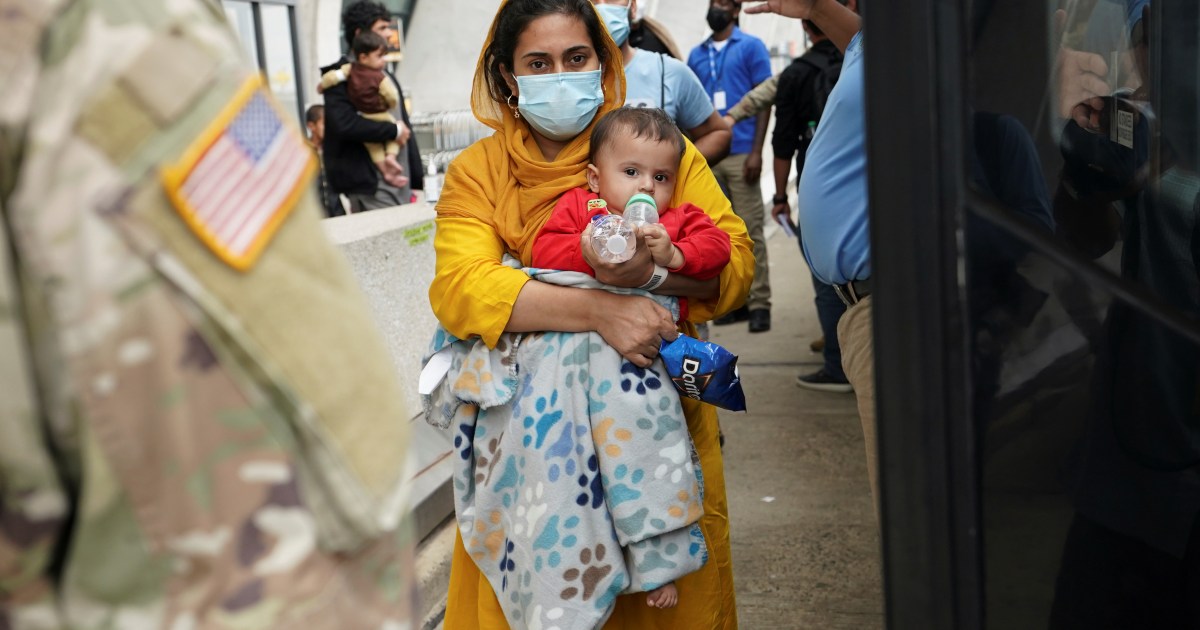
The United States is exploring ways to evacuate American citizens and Afghan allies looking to leave Afghanistan including via land routes, US officials said on Wednesday, reasserting a commitment to help eligible people who were not airlifted out.
Two days after the last US flight left the airport in Kabul, State Department and Pentagon officials said Washington is also focused on moving evacuees from temporary accommodations to permanent resettlement in the US or other countries.
US Under Secretary of State Victoria Nuland said the Biden administration is engaged in “ongoing intensive diplomatic work” to help US citizens and Afghan allies wishing to leave Afghanistan following the Taliban’s takeover of the country.
“We are looking at all possible options – air routes, land routes to continue to find ways for them to help evacuate and to support them in that,” she said during a news briefing.
Nuland welcomed efforts by Qatar and Turkey to reopen the airport in Kabul in coordination with the Taliban. “They have relatively optimistic projections about when that will happen, but we need to see it happen obviously,” she told reporters.
She said the administration’s “top priority” is to get the 100 to 200 remaining US citizens out of the country.
Nuland declined to share details about the possible land routes to minimise potential risks for people who may have to take them.
Also, on Wednesday, State Department spokesperson Ned Price said Washington fully backs efforts to reopen the airport in Kabul, which he said would allow US citizens to leave Afghanistan and enable the delivery of humanitarian aid.
“The Turks and the Qataris together with forces on the ground are working as quickly as they can to reopen the civilian airport,” he said. “This is an endeavour that we continue to support in every way we can because we believe it is important for our own interests.”
The US officially announced the end of its 20-year military presence in Afghanistan on Monday after evacuating more than 120,000 people, including 6,000 American citizens, since mid-August.
“I was not going to extend this forever war, and I was not extending a forever exit,” President Joe Biden said on Tuesday in defence of the withdrawal. “The decision to end the military lift operations at Kabul airport was based on unanimous recommendation of my civilian and military advisers.”
The Taliban took over Afghanistan in a lightning offensive earlier this month as the US was pulling its troops out of the country. The group reached Kabul on August 15 as President Ashraf Ghani fled the country and government forces collapsed.
Biden has faced criticism from US allies and Republican legislators over the withdrawal, as well as the chaotic scenes that unfolded at Kabul airport as Afghans desperately tried to get on evacuation flights in fear of Taliban repression.
Earlier on Wednesday, US Secretary of Defense Lloyd Austin lauded the evacuation effort, however, saying he was “proud” of the role the US military played in the conflict.
“Now the war is over, and we’re entering a new chapter – one where our diplomats and our interagency partners take the lead,” he said. “We’re part of an urgent team effort to move Afghan evacuees out of temporary housing in intermediate staging bases in the Gulf and in Europe and on to begin new lives.”
White House spokeswoman Jen Psaki said the US is looking to accommodate as many as 50,000 Afghan refugees on military bases temporarily until they are resettled. “There is capacity and we’re working towards capacity at our military bases for up to 50,000,” she said.
US officials have stressed they will hold the Taliban to its pledge to ensure a safe passage for those looking to leave.
The US military had coordinated with the group during the evacuation operation – a relationship that Washington describes as pragmatic, not a recognition.
Joint Chiefs Chairman Mark Milley, the top US general, told reporters on Wednesday that the Taliban has been “ruthless” in the past but stressed that Washington had to work with the group to ensure the safety of the evacuation operation.
Milley did not rule out future coordination with the Taliban against the Islamic State in Khorasan Province, ISKP (ISIS-K), an ISIL affiliate. Asked if Washington would coordinate with the Taliban against ISKP going forward, he answered: “It’s possible”.
Austin, standing next to Milley, interjected and said that he would not “want to make any predictions”.